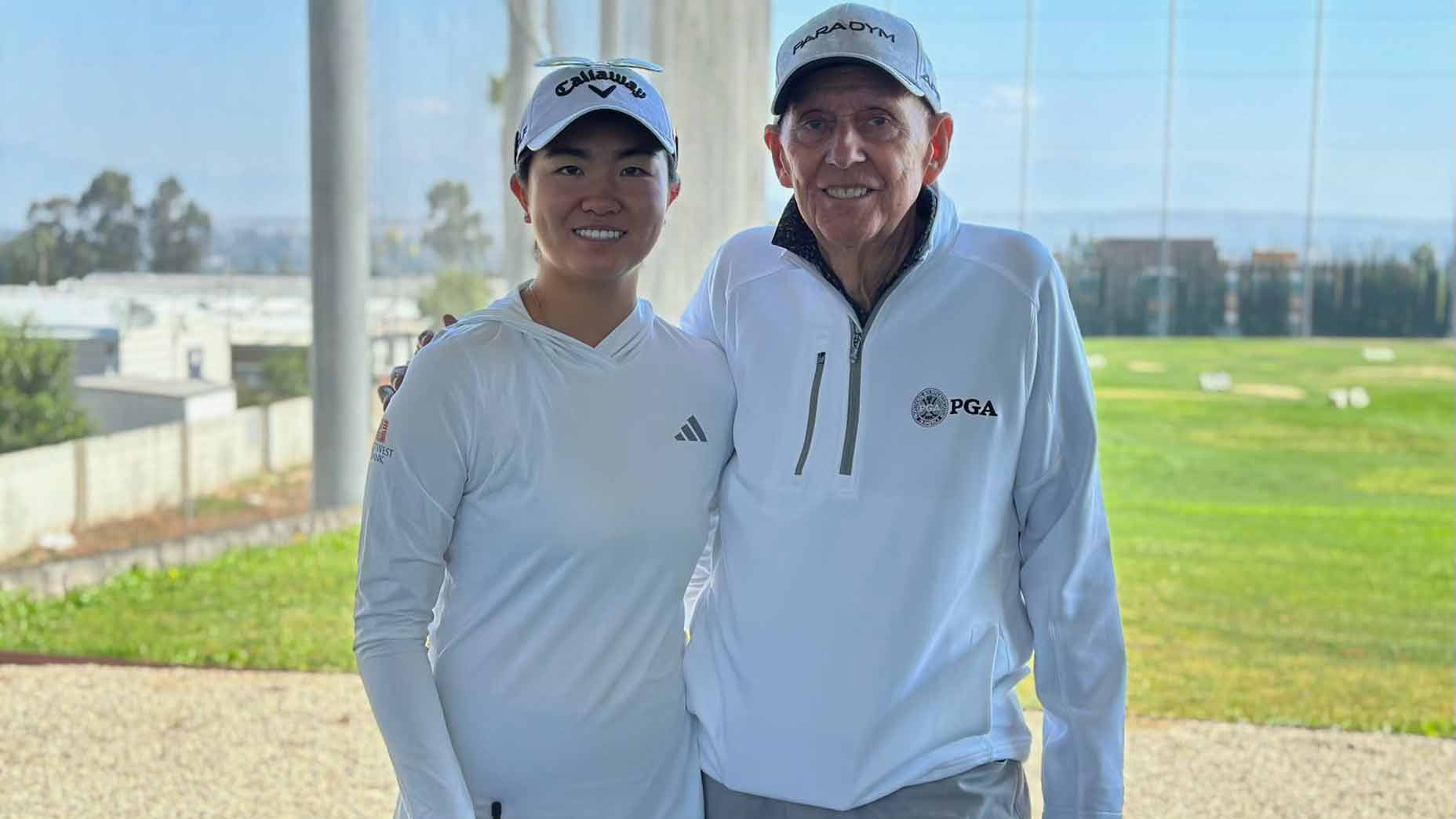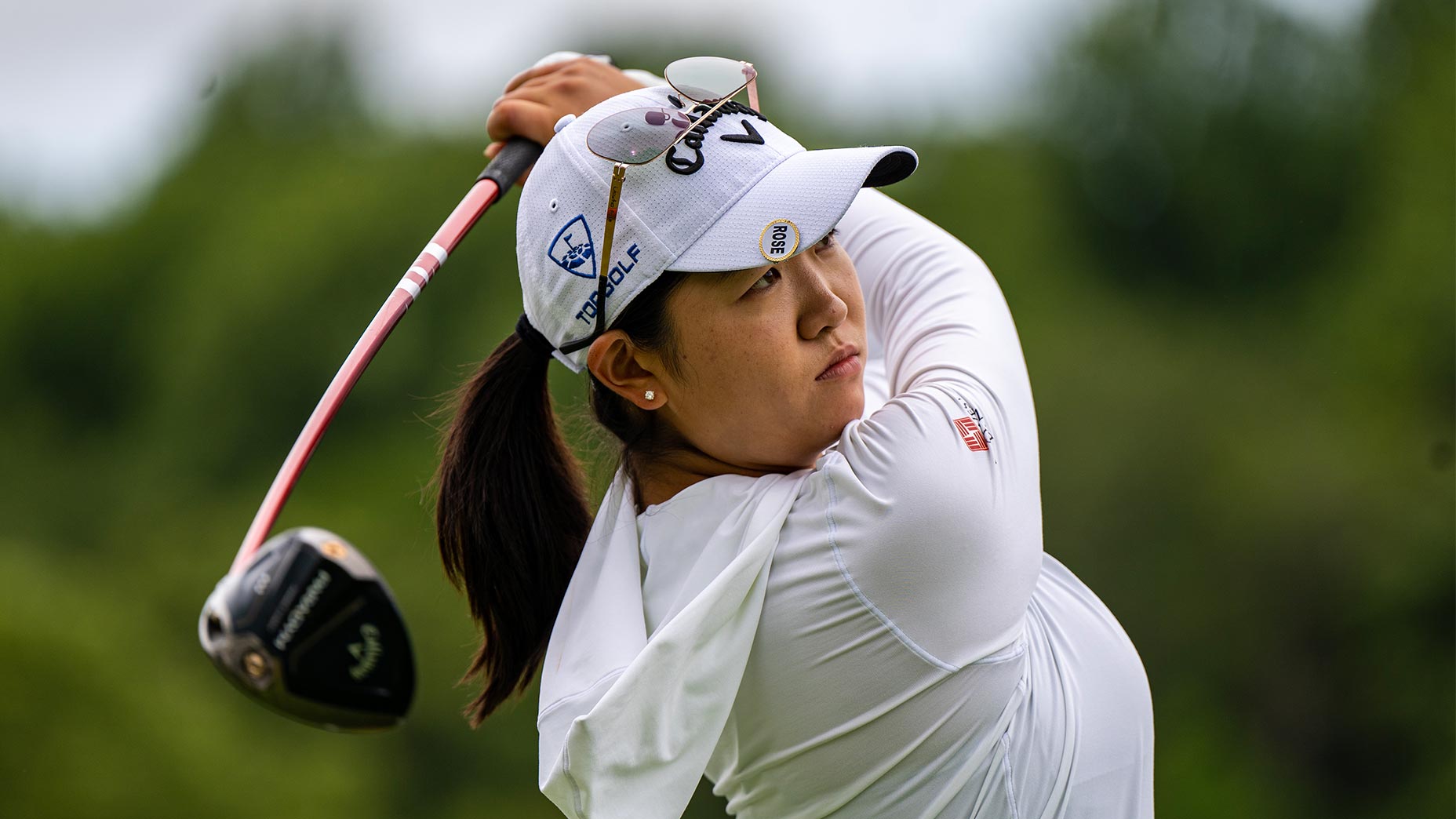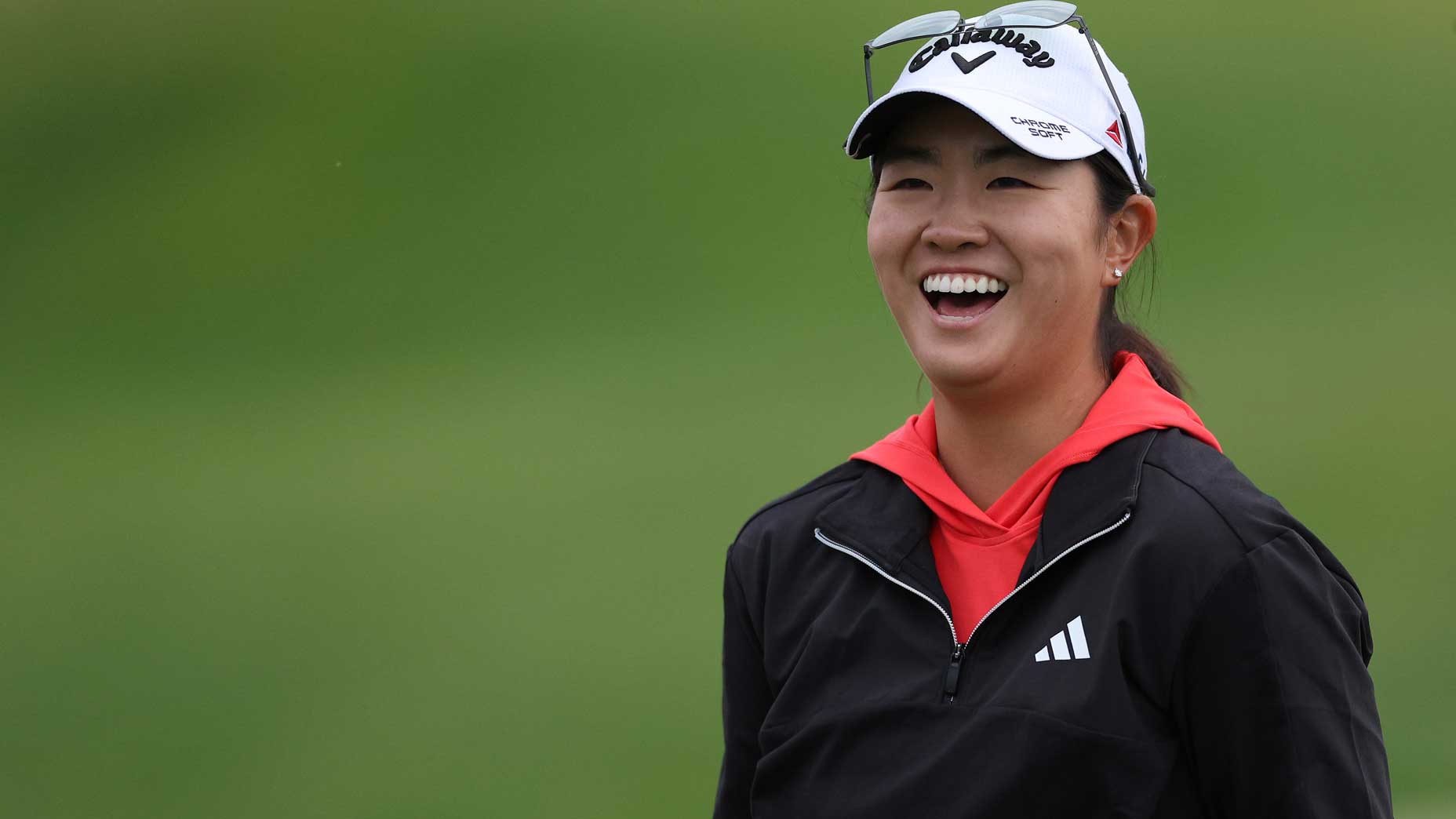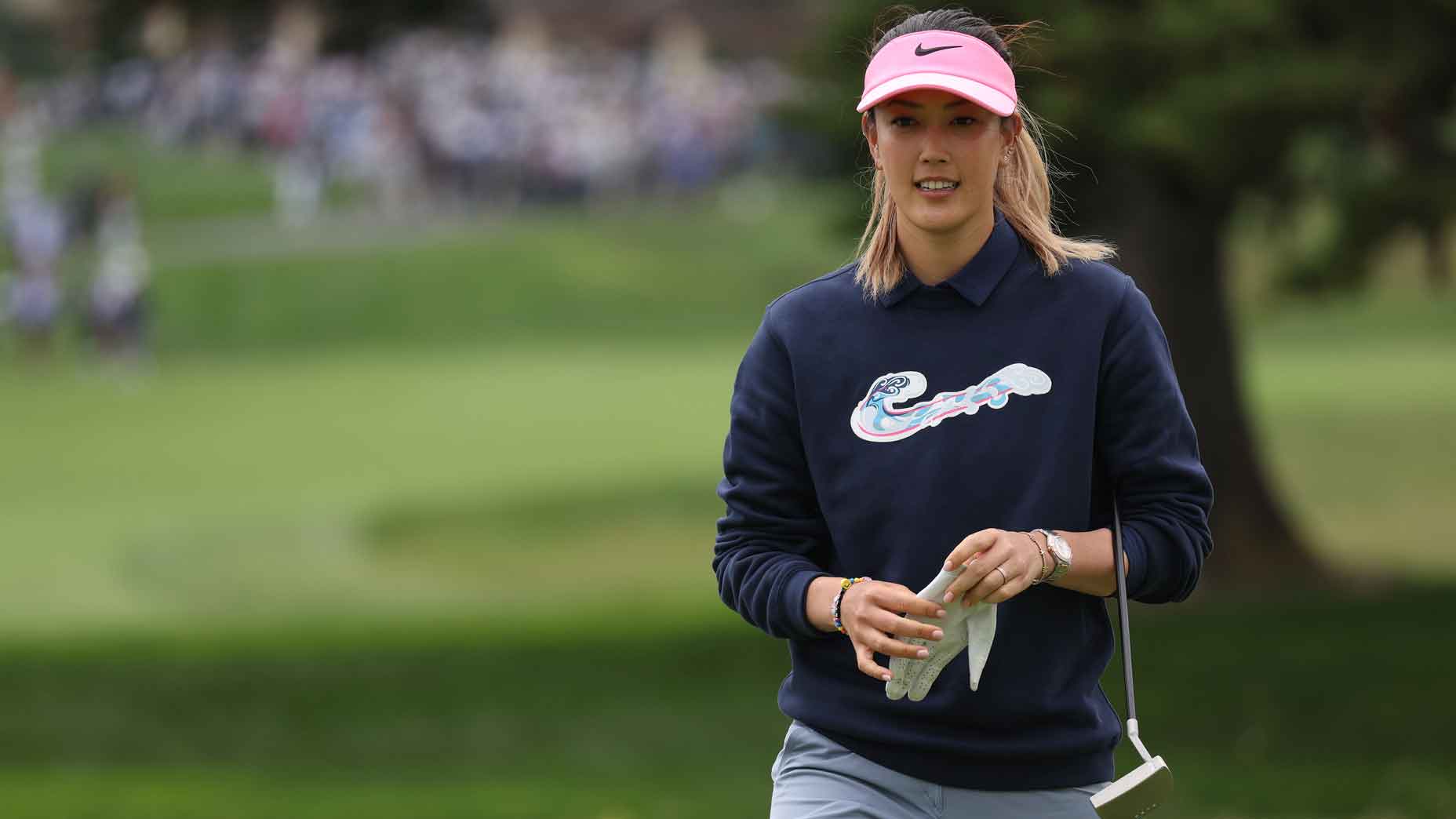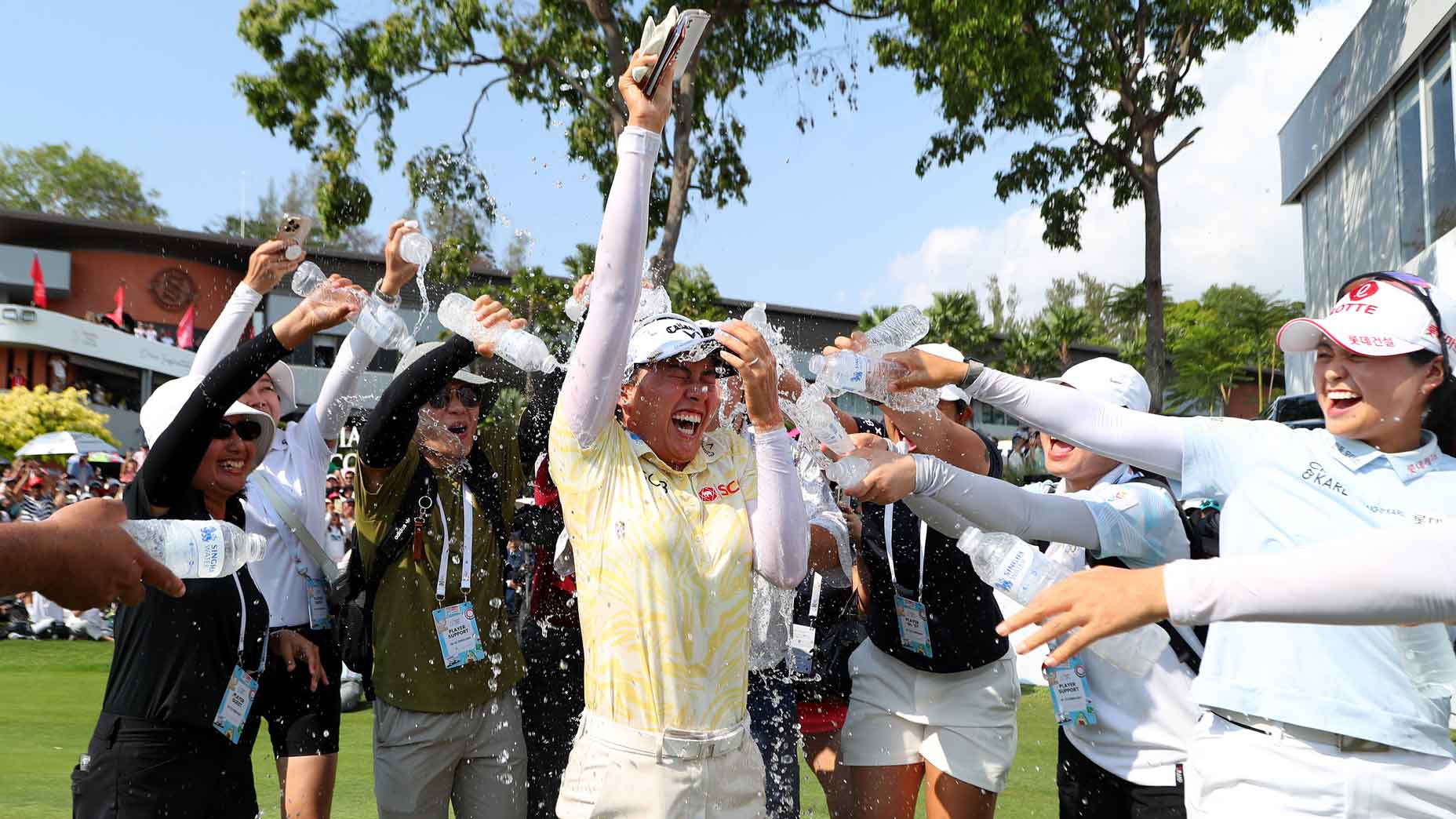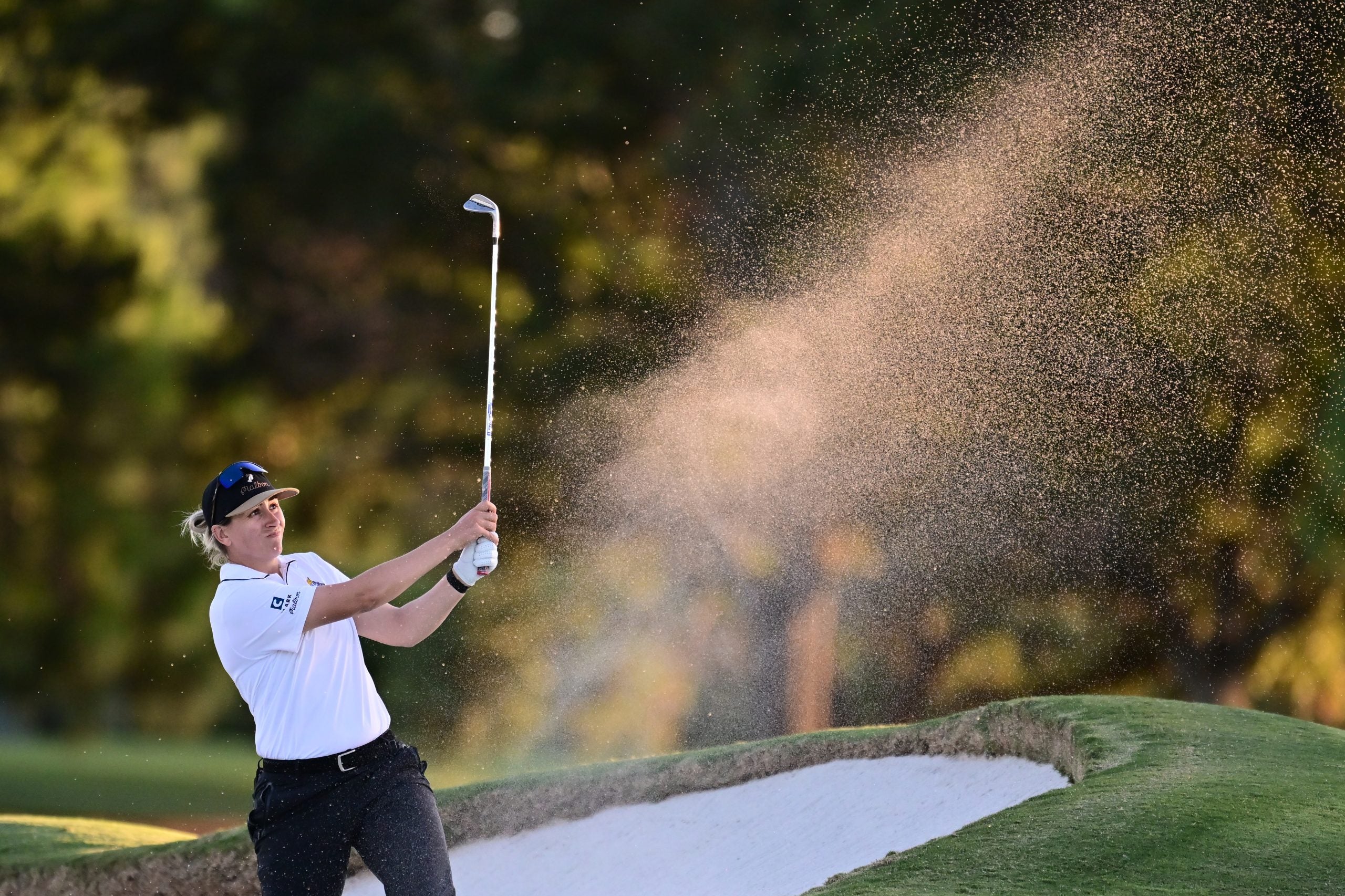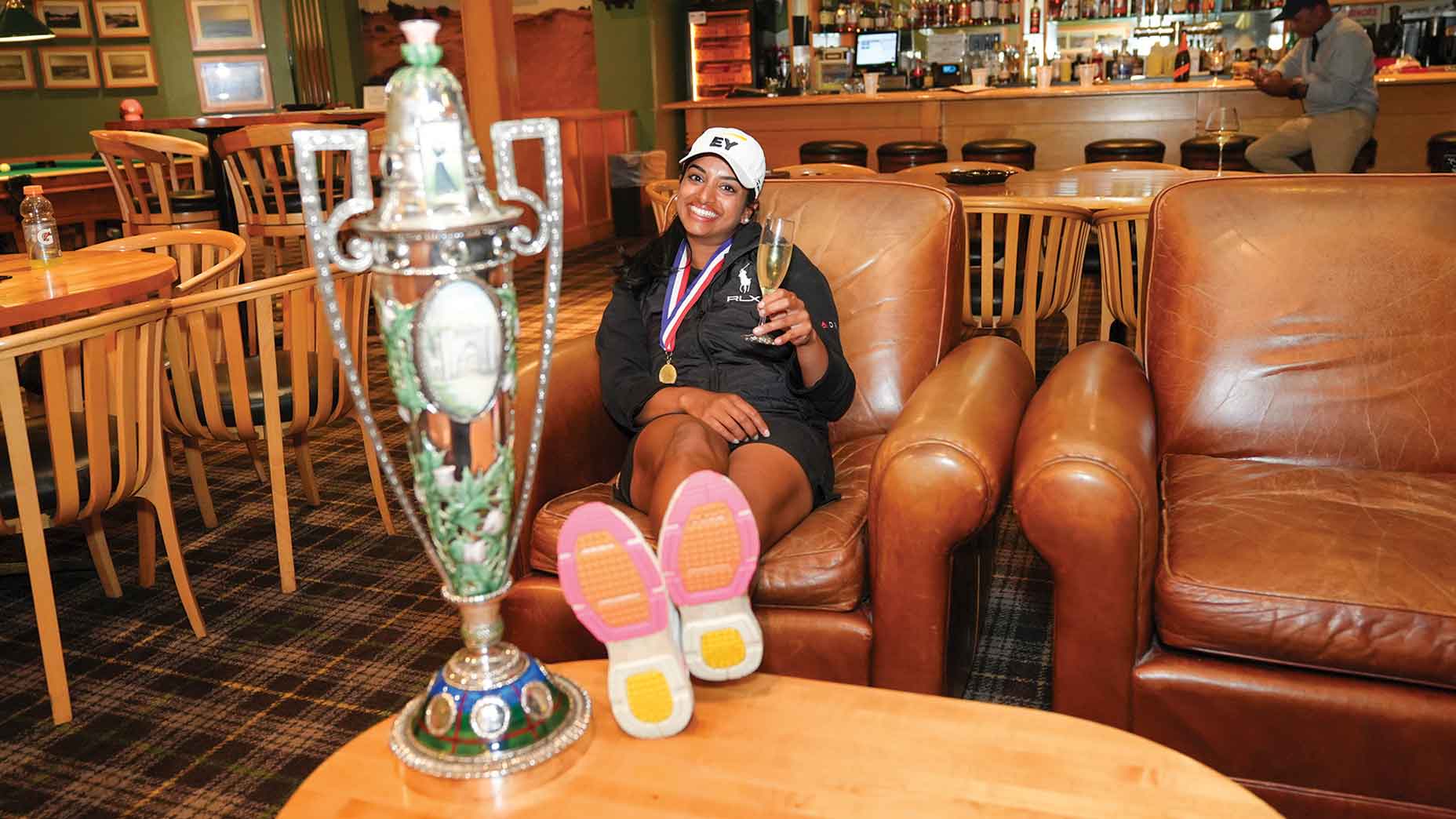PEBBLE BEACH, Calif. — On Saturday afternoon, as a swarm of fans set off to follow Rose Zhang in the third round of the U.S. Women’s Open, a septuagenarian with a cane climbed into a cart and prepared to do the same.
George Pinnell can’t get around a golf course on his own anymore, not with the bum knees and the balky ticker. But he can still spectate, and he’s been doing lots of that his week, navigating a buggy amid the crowds to keep watch on his star pupil.
Everyone seems to have an eye on Zhang these days, the bookmaker’s favorite heading into the event, and the darling of reporters and the public alike. At Pebble, her coach has attracted less attention.
In junior golf circles, though, he has long stood out.
For more than 30 years, starting decades before Zhang became his student, Pinnell has been grooming young talent into top contenders. Anthony Kim and Kevin Na both passed through his stable, as did LPGA Tour stalwart Mi Hyun Kim. At the junior, collegiate and professional level, Pinnell’s players have accounted for more than 350 tournament wins.
If Pinnell’s reputation hinges partly on those titles and the Trackman-guided insights he brings to bear, it depends as well on the hybrid role he plays as an instructor, a mix of swing-whisperer and real-world mentor.
Zhang credits him with helping him her find balance.
“George has provided me with great advice, not only in golf but in life as well,” she says.
For Rose Zhang, the *real* journey begins nowBy: James Colgan
In an era when the typecast image of the A-list golf instructor is a stern-looking dude standing arms-crossed and staring through wraparound shades, Pinnell, who turns 78 next month, cuts the profile of a grandfatherly sage. He speaks with the perspective of a man whose life has not been boxed in at the range. To his students, he preaches the gospel of good comportment — of doing unto others what you’d have them to do to you— along with the primacy of the now. His counsel often comes down to staying in the moment, without tripping over what was or what might come to be.
“So much of it is managing expectations,” Pinnell says. “When a golfer wakes up in the morning, whether it’s an amateur or Tiger Woods or Lydia Ko or Rose Zhang, they have no idea how they are going to play. So why would they get caught up thinking about what might happen? When people ask Rose about her expectations coming into an event, she’ll say she doesn’t really have any, and she means it. It’s something we talk about all the time.”
Unlike the vast majority of his students, Pinnell came to golf relatively late. A multi-sport athlete growing up in Iowa, he played basketball and baseball at what was then Northeast Missouri State (it’s now Truman State), but he didn’t touch a club until a weekend in college when he joined joined a buddy from the hoop court at a local course. Addiction followed.
“Golf fascinated me because I was a good athlete and I couldn’t play,” he says. “It bugged me and intrigued me at the same time.”
Though he graduated with a degree in physical education, his first job after college was in driver’s education, the start of a string of non-golf-related gigs. He worked as a cop in Colorado, and then as a salesman of communication devices for a company that transferred him to Southern California.
“I was earning well above what I thought was my pay grade,” Pinnell says. “But I always had sports and coaching in the back of my mind.”
Just shy of his 40th birthday, Pinnell got an offer to apprentice for a golf pro at a club in Fountain Valley, Calif. He took the job, and then jumped through the hoops of becoming a certified PGA pro. Teaching came naturally to him, as did technology, which was on the verge of taking the industry by storm. In 1994, Pinell became an early adopter of V1 video as an instruction aid. A little more than a decade later, when Trackman was being used mostly for fittings and distance measuring, Pinnell began employing the tool in his teaching.
“It’s kind of strange because I’m not a math guy or computer guy,” he says. “I was born 42 years early for that.”
Among Pinnell’s early students were Jay Choi and David Oh, future collegiate All-Americans who would go on to compete on the Japanese PGA Tour. Other solid juniors followed. Pinnell’s name was getting out. Mi Hyun Kim tapped him for lessons, as did the emerging amateur star, Kristen Park.
“It just kind of snowballed,” Pinnell says.
As much as he leans on technology, Pinnell has also long relied on his eye. With a few swings, he says, he can get a decent gauge of a player’s promise.
“I don’t know what their inside is like right away, how badly they want it, how hard they want to work,” he says. “But the athleticism of the move tells me a lot.”
In stunning pro debut, Rose Zhang keeps rolling — right into history booksBy: Zephyr Melton
Nearly a decade ago, when an 11-year-old Zhang first turned up at his range, she already possessed a fluid motion; Pinnell knew in an eye-blink that she was special.
He can talk for hours about the tweaks they’ve made since, and the distinctive features of her swing. But he’s equally effusive about Zhang as a person, how she conducts herself in both public and private, the relationships she’s built, the way she treats people.
“From the day I met her, there was a maturity about her that you don’t often see at that age,” he says.
His interactions with her have changed since she enrolled at Stanford. The two don’t work in person nearly as often, but Pinnell tries to be on hand for the big tournament she plays. He was at this year’s NCAA Championships, in Scottsdale, where Zhang came away with the individual title, but he missed out on her win in the Augusta National Women’s Amateur Championship.
“They don’t have a cart for me, so I can’t get around,” he says.
Years of basketball have ruined his knees. His left shoulder is wreck from rotator-cuff surgery, compounded by a fall, and he’s dealing with heart failure. It’s not only tough to walk. It’s something of a strain to travel, though that doesn’t hamper business, given all the students who want to come to him. Widely respected before Zhang came along, Pinnell has benefited from a post-Rose boom, the only downside being that he can’t accommodate all the interest.
He’s reachable, though. Ring up the main number for his So. Cal golf academy, and you get Pinnell’s cell phone.
“I want to be able to help as many people as I can,” he says.
At Pebble this week, he’s around to offer Zhang assistance. Already, he’s corrected a small problem with her grip. But otherwise, he says, “Rose doesn’t need much hand-holding.”
There will come a time when he won’t be there for her, when even limited travel will become too much. People ask him about retirement.
“My response is always the same,” he says. “That will either be when my health fails or they quit listening to me.”
He’s hoping it’s the former.
“I wouldn’t take it well if they stopped listening,” he says. “I love coaching too much.”
